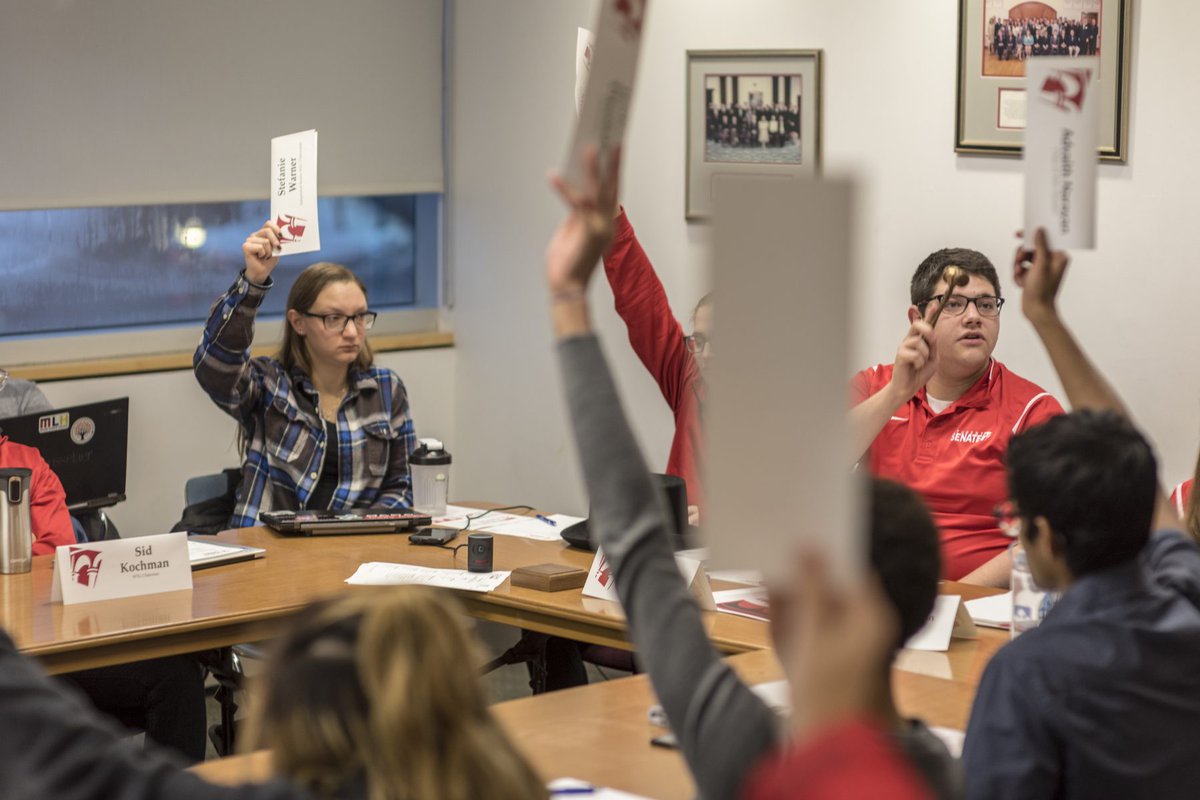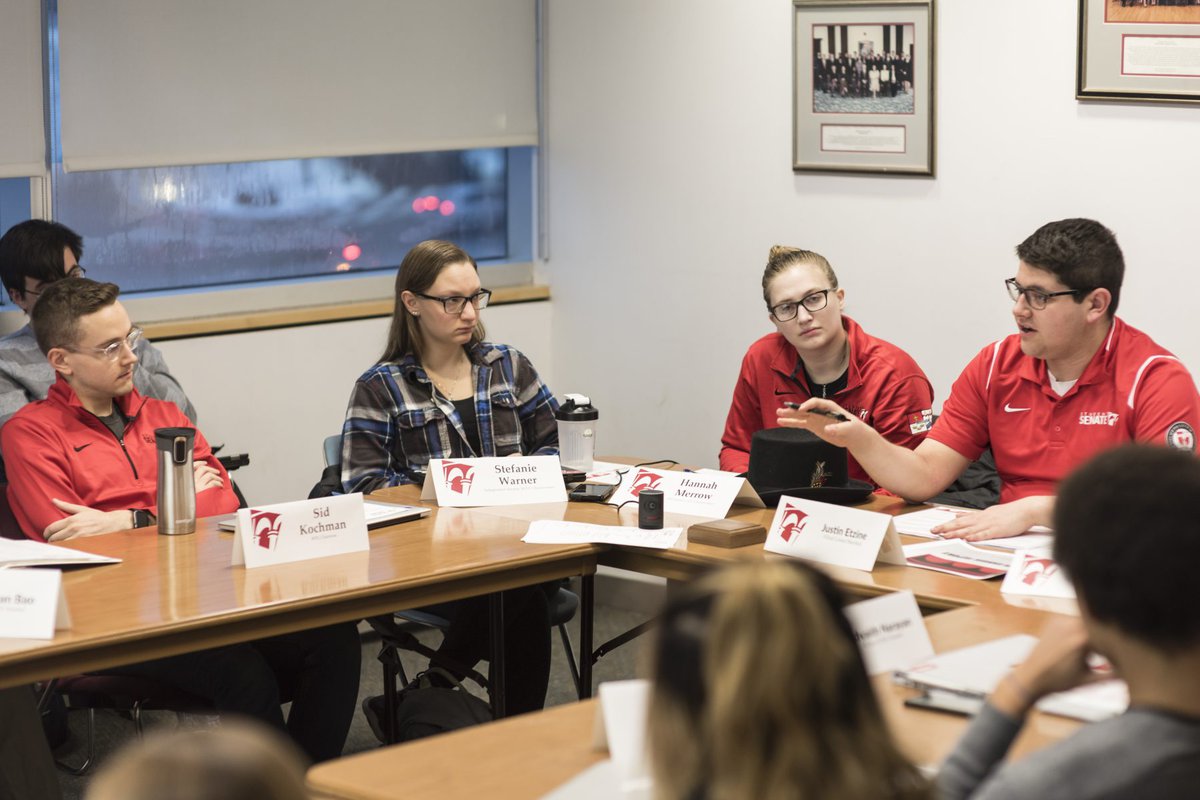Constitution changes hotly debated

The Student Senate opened one of its final meetings with a motion to appoint Deepika Senthilnathan ’21 as a Club/ICA representative.
Senthilnathan had come before the Senate the previous week, where the motion to approve her failed 8-8-3. The day after, Senthilnathan was re-appointed by the Executive Board 12-0-1, to have her serve as a representative for the last four weeks of the term. The E-Board currently has 18 voting members, due to study abroad, co-ops, and resignations.
Much of the same discussion points were brought up from the last time, detailed in last week’s Senate article at poly.rpi.edu/s/senover8. Senthilnathan has been working with the Policies Committee and recently joined the Business Operations Committee, and is a member of the Indian Student Association, but is focused mainly on student government. After some discussion, the Senate voted 14-8-1 for her approval. Approving an E-Board representative requires a two-thirds vote, meaning Senthilnathan was one vote short at only 63.6 percent of the vote.
Next, the Senate continued with regular business. Grand Marshal Justin Etzine ’18 reminded the Senate that campaigning officially starts Monday, February 26. He also encouraged any senators to notify him of any new legislation they plan to bring forward, as the Senate has only four meetings remaining in the semester.
As a last item of business, Steve Sperazza ’18 presented draft proposals of revisions to the Union Constitution. Sperazza emphasized that these were only draft suggestions, and that no votes would be made during this meeting.
The presentation was broken into three sections, with discussion held after the presentation. The first section was on administrative staffing changes. The proposals included clearing up the approval process for hiring within the Rensselaer Union, requiring E-Board approval to hire candidates, and requiring that the E-Board approve any personnel firing.
The next section concerned the Student Rights and Responsibilities Handbook. Sperazza expressed his desire to have the Senate review the Handbook each year, and to require Senate Approval for any changes to the document.
Last were changes to how the Graduate Council operates. For this section, graduate student Anthony Ashley presented to the Senate. Ashley discussed wanting to increase the number of graduate representatives on their council, currently set at five. He also wanted to remove the need for Senate approval of the Graduate Cohort Fee and changes to GC bylaws.
The discussion was divided into three parts, so that the topic could be discussed one at a time. During the administrative staffing discussion, graduate student Michael Gardner pointed out that hiring without Executive Board approval gave rise to issues in the past, and then asked how this might be resolved. Sperazza did not have a specific answer, but felt it was important that something more defined was established.
Ashley noted that the presentation stated that these changes would try to bring the Constitution in line with Institute bylaws, but felt some of these changes would move the Constitution further from that goal.
Vice President and Dean of Students Travis Apgar expressed agreement with Ashley, saying “When I read these suggestions—and I realize these are talking points—I don’t see how they comply with the Board of Trustees’ resolution.”
There continued to be back and forth discussion on how this problem might be resolved, but no conclusion was made. Toward the end of the discussion, Etzine said “the Union Constitution needs to contain the bare minimum for it to operate properly. Like the United States Constitution, it should be a theory guiding document.”
Discussion on changes to how the Senate handles the Handbook was short, with only Sidney Kochman ’19 asking about why the Senate stopped approving the Handbook in 2009. Etzine, to his knowledge, believed that the requirement was only in the Senate’s bylaws, not in the Constitution.
Lastly was the discussion of the proposed changes to how the Graduate Council operates. Ellie Mees ’18 was worried that removing the requirement for the Senate to approve changes to the GC’s bylaws would go against traditional checks and balances. Ashley refuted, saying that the GC wanted to update an internal-only document, and that it could never be in violation of the Union Constitution, since the GC is a subsection of the Union.
Chris Duffy ’20 asked about raising the number of representatives on the Council. Ashley said that it would help keep interest up for both legislative and event planning purposes. The Council has a lot of interest in the beginning of the year, which drops off as the semesters go on. With voting rights, “it makes people think twice about skipping [meetings],” said Ashley.
At the end of the meeting, Sperazza thanked the Senate for the recommendations and stated that he and the Internal Reforms Committee would consider them. Due to a tight schedule and a Constitution clause that requires amendments to be submitted one month before voting, the Senate will be voting on these changes on February 28.

 Student Senate
Student Senate